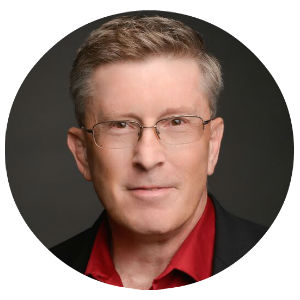 By Stephen Tharret, AFS Community Expert
By Stephen Tharret, AFS Community Expert
“The price of light is less than the cost of darkness.” -- Arthur C. Nielson
This quote from the renowned market researcher and the founder of AC Nielsen, encapsulates the true value of market research and the understanding it can bring to bear for those who seek it.
Market research offers studio operators valuable information that can change the trajectory of their business. Research can provide thoughtful and impactful insights into a multitude of critical elements that influence how a studio performs, among them:
- Understanding industry trends across realms such as operations, programming and finance and how they can be used to position your business more effectively for success;
- Offering insight into key industry benchmarks that can be used to provide comparative and supportive data that banks and investors need to make decisions regarding whether to invest or loan you capital
- Understanding the competitive landscape and which competitor’s voice is being heard the loudest, and whose brand resonates the most with consumers
Possibly the greatest value of market research lay in its inherent capacity to help businesses respond to the “creative destruction” spawned by capitalism, or as Joseph Schumpeter professed, “Profit is the payment you get when you take advantage of change.”
Market research provides a framework for acting, whether proactively or reactively, on the constant changes that arise in today’s rapidly evolving marketplace. Absent the wisdom offered by well-designed and executed market research, studio operators are left to act on intuition alone, what Canadian Professor Marshall McLuhan referred to as a “dangerous luxury.”
Responding to capitalism’s storms of creative destruction requires having the right information and the discipline to act on it.
Having brought forward the value of market research, we devote the remainder of this blog to sharing a few insights from AFS’s recent Marketing Best Practices Research Report. The Report offers revelations regarding how fitness studios position their business, how they promote their brand, and what avenues they use to generate traffic. Here are a few of the many insights the Report offers:
- Studios purposely pursue differentiation by leveraging several core attributes, three of the most prominent being:
(1) offering an intimate physical and social environment (67% indicated this);
(2) delivering results-driven personalized coaching (65%), and
(3) fostering a tribal culture (57%).
Market research provides a framework for acting, whether proactively or reactively, on the constant changes that arise in today’s rapidly evolving marketplace.
Studio operators see these attributes as powerful differentiators from traditional clubs, and if delivered extremely well, a significant differentiator between their studio and others.
- Social media marketing, word of mouth (WOM), and other digital marketing platforms are the most often used and most effective strategies at driving traffic. The most frequently used marketing strategies revolved around social media platforms and WOM, followed by blogs, website searches, etc. Analysis of the raw data on client acquisition and net client growth showed the studios that leveraged social media, WOM and other digital platforms had significantly higher new member enrollment and net client acquisition than studios that leaned more heavily on traditional marketing strategies.
- Studios in this study experienced average net client growth of 23% in 2015 – the equivalent to 92 additional clients. These numbers speak to an extremely healthy business environment for fitness studios, one in which there continues to be great consumer demand for their services.
As brought forward in this blog, data from industry-based research, such as produced by AFS, or club/local market-based research, is a necessary tool for those who wish to ensure their business thrives today and in the future.
For those who want to learn more about the fitness studio business, we encourage you to visit AFS’s research page and purchase the full report.
Stephen Tharrett, along with Mark Williamson, are the co-founders of ClubIntel - a brand insights and consulting firm serving the health, fitness and private club industries. Starting in 2014, Stephen spent 20 years with ClubCorp, serving in a variety of roles from athletic director to SVP of athletics, golf and tennis. From 2008 to 2010 he served as CEO of the Russian Fitness Group. He has served on the board of IHRSA, as well as serving as its President. He has also served in a variety of volunteer roles for the American College of Sports Medicine, including serving on its education and certification committees and co-authoring the 2nd, 3rd and 4th editions of ACSM’s Health/Fitness Facilities Standards and Guidelines. Stephen is the author of ten books on fitness, including Fitness Management, 3rd edition and AFS’s Studio Success. He presently serves on AFS’s Advisory Council and is involved with other industry organizations.


Join the Conversation!